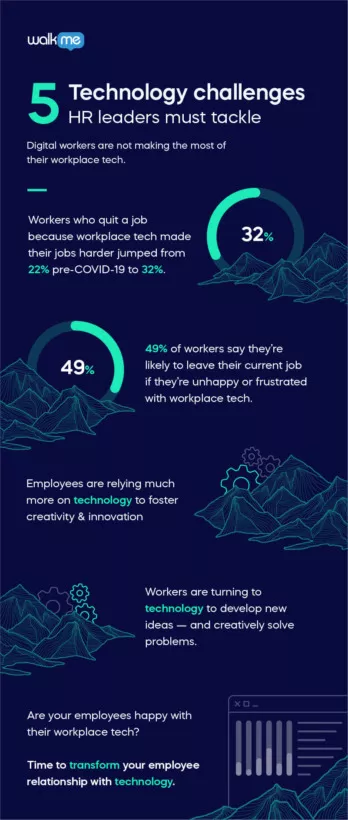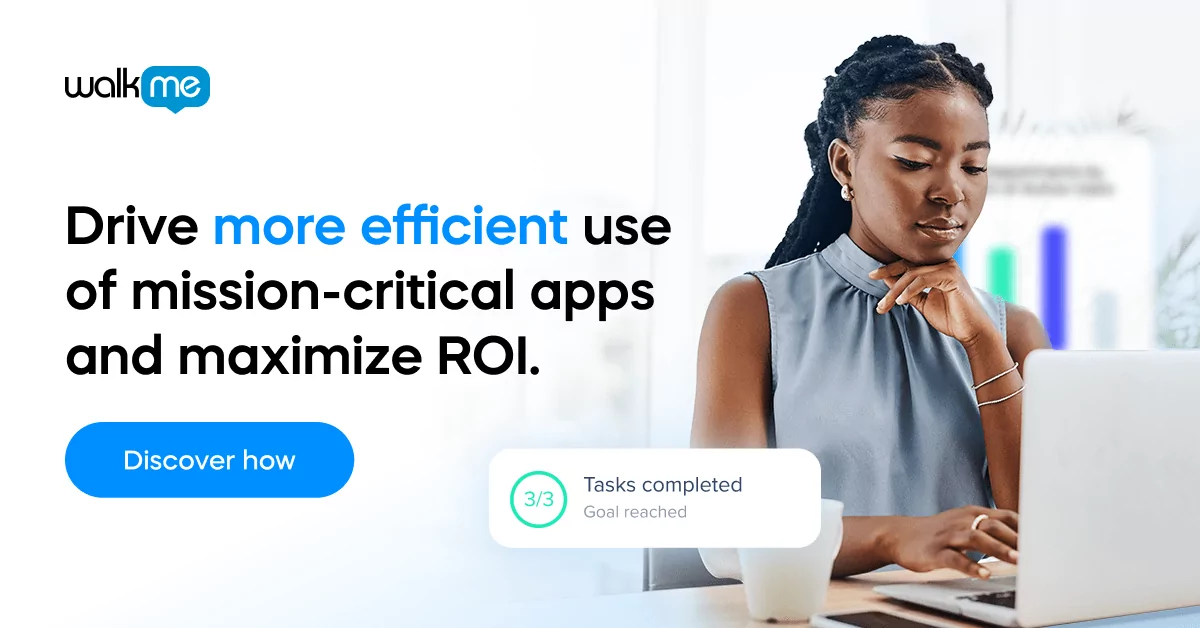HR leaders today face a variety of challenges in a post-pandemic world; a distributed workforce, employee mental health, remote onboarding, inclusion, onboarding and training, and managing the entire employee lifecycle.
As an HR professional, you expect your HR tech to help you overcome these challenges and reach your goals, be it developing and executing a human resource strategy, managing the employee lifecycle, or achieving operational excellence. It might sound straightforward, but in reality your current HR technology solutions might hinder, rather than improve, the employee experience.
Instead of technology helping us overcome challenges—technology has become the challenge itself.

Digital workers will not settle for bad workplace tech.
According to Adobe’s State of Work 2021 report, even pre-COVID-19, almost a quarter (22%) of workers say they had already quit a job because workplace tech made their jobs harder. Today, nearly a third of workers (32%) say they have said goodbye to an employer whose tech was a barrier to their ability to do good work.
Even more concerning, nearly half (49%) of U.S. workers say they are likely to leave their current job if they’re unhappy or frustrated with the technology they use at work.
The study also found that people are more likely to turn down a job because of outdated tech, while they might apply for a job because they heard a company’s employees use great technology.
Adobe’s findings provide insight into generational differences as well, citing that if they feel their work technology makes their job harder, Gen-Xers will leave a job and reject offers at higher rates than their younger colleagues.
Today, digital workers expect the technologies they use at work to be both up to date and fit for the job. Companies must provide the proper tools and a smooth remote work experience.
5 technology challenges HR leaders must tackle
WalkMe anticipates HR leaders will be busier than ever overcoming the following 5 major technological challenges:
- Too many applications
With an abundance of applications, HR teams and employees feel lost and frustrated, jumping from one app to another, not sure how to use them all, and unable to complete various tasks without the help of IT or another team member. Heads of HR must find a way to improve HR processes to benefit the organization from a business level, while also taking into account employee experience and needs.
- Managing the remote onboarding experience
Taking into account the digital dexterity of organizations’ diverse employee base, HR leaders are expected to manage the onboarding experience for all user types, but struggle to overcome language barriers and costs.
- Compliance requirements
HR teams struggle to ensure they do not violate any of the compliance requirements when updating documents. They also cannot track these updates, potentially leaving mistakes for others to find and deal with themselves.
- Onboarding and training
Considering that HR software usage is infrequent and changes are continuous, onboarding and training users to a desired level of proficiency has become a major challenge. HR professionals are finding it difficult to ensure employees complete processes accurately and efficiently across multiple applications.
- Juggling a multi-platform HR environment
Simple processes become inefficient, long, and prone to error when navigating an HR tech stack. Between HR departments working in silos, geographical compliance needs and migration of information across platforms, it’s challenging to measure employee productivity and software usage.
Transforming the employee relationship with technology
It goes without saying that COVID-19 has changed the digital workplace. Moreso, it’s actually provided an opportunity to press the reset button when it comes to HR methodology and workforce planning.
Organizations are finding new ways to connect and engage with their customers. HR professionals are speaking about the importance of mental health with candidates and employees. HR training and onboarding is constantly adapting to fit the changing digital worker’s needs.
“Enterprise-grade work management applications centralize and connect work across teams, departments, and companies. They eliminate silos, integrate applications and data, and keep people in the environments they prefer, while surfacing insights to help companies preempt problems, reallocate resources, and optimize their people and processes.” (State of Work 2021, Adobe)
The number one takeaway from this is that technology goes hand-in-hand with the people who use it. Humans are at the heart of it all.
That means that HR leaders must invest in the right enterprise-grade work management technologies to help them overcome the challenges ahead in order to improve the overall employee experience.
Want to learn more about making a successful workplace transformation? Listen to our podcast with George LaRocque, Founder and Principal Analyst of Work Tech.


